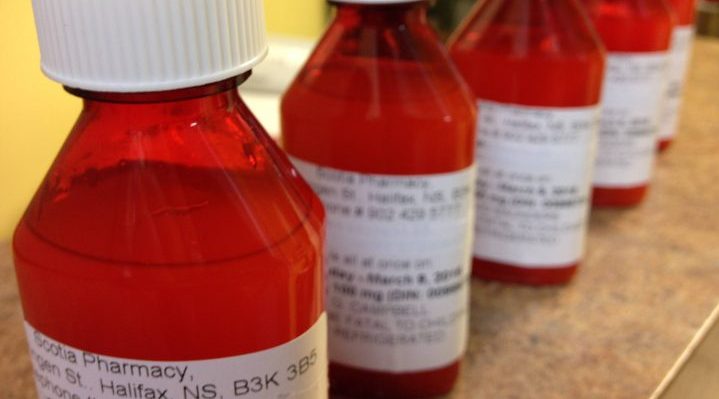A downtown Halifax methadone clinic, known for helping patients with opioid addiction, says it’s run into financial trouble and can’t accept new patients.

The Direction 180 methadone clinic on Gottingen Street says it needs another $150,000 a year to stabilize its current operation plus $2,000 a year for each new patient. An appeal has been launched with the provincial government for extra cash.
Unexpected costs for the clinic’s new mobile outreach bus, coupled with unsuccessful grant applications, have put a major hole in its finances.
READ MORE: Experts say battling prescription drug abuse in Nova Scotia is difficult
The clinic recently laid off two staff members and scaled back its services.
“We’ve been reducing staffing hours,” Cindy MacIsaac, the clinic’s executive director, said.
The clinic, which has about 460 clients, has been forced to stop taking new admissions because they can’t safely monitor their treatment. The wait list currently has 50 names.
“So while those folk wait, they continue to be in grave risk of overdose, of contracting HIV or hepatitis C, getting involved with the criminal justice system,” said MacIsaac.
“Their lives are deteriorating around them. The longer somebody waits for treatment, the greater the risk is and the more unlikely that they will get into treatment and have success in their treatment.”
David Ford, who has been going to Direction 180 for 16 years, says the clinic saved his life and he’s discouraged that others can’t access the service.
“My life wasn’t stable 16 years ago. Today, it’s stable and it’s stable because of this clinic,” Ford said.
“It comes down to the dollars and cents? Let’s use the sense.”

Mainline Needle Exchange, which often refers clients to Direction 180, wrote a letter to Health Minister Leo Glavine last Wednesday to appeal for more funding on the clinic’s behalf.
The clinic receives just over $500,000 annually from the provincial government and MacIssac estimates that to be about 70 per cent of the clinic’s funding. The rest is raised through grants and donations.
The clinic says it needs more money to bring staffing levels back to where they were and to begin accepting people who are on the list waiting for treatment.
On Thursday, Glavine confirmed the Department of Health and Wellness has received the letter and is considering the clinic’s request for more funding, although he couldn’t say when a decision would be made.
“Like many requests, it’ll come before us for consideration and if they have a shortfall for this fiscal year, that will be given consideration,” Glavine said.
“They run a vital program and it’s one I’m very familiar with. They’ve upgraded their mobile facility and I know which probably costs more than their traditional vehicle has so it’s a time for us to look at the work they do and what may be their needs for the future.”
Glavine says the department is looking at both the short and long-term needs of the operation.
“We want this program to be able to operate to the fullest extent,” he said.
There is also an online petition, to gather support for staff and clients at the clinic.
“I think it generates awareness that people do support our program and do see the benefits and I think it might put a little bit of pressure on the department to look at further examining our limitations,” said MacIsaac.
- ‘Shock and disbelief’ after Manitoba school trustee’s Indigenous comments
- Canadian man dies during Texas Ironman event. His widow wants answers as to why
- Several baby products have been recalled by Health Canada. Here’s the list
- ‘Sciatica was gone’: hospital performs robot-assisted spinal surgery in Canadian first




Comments